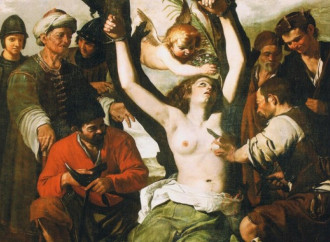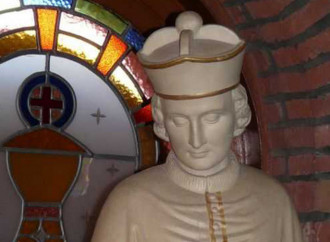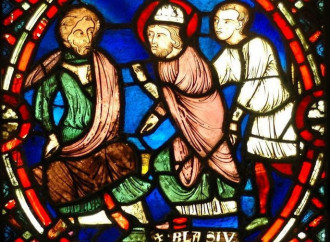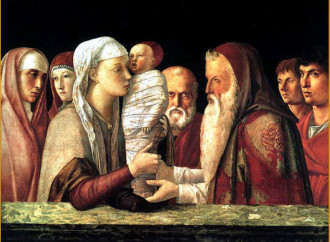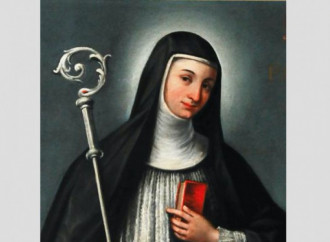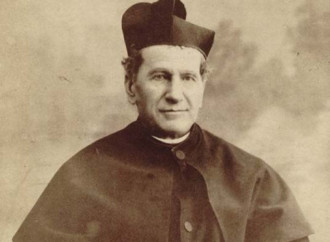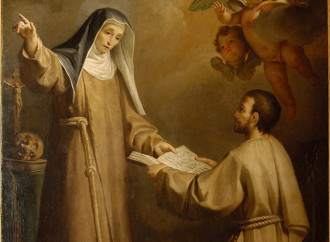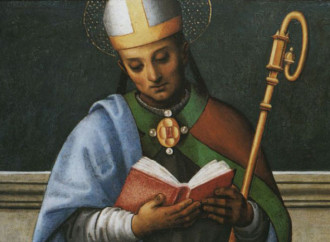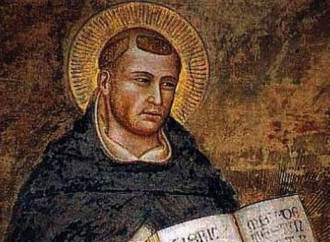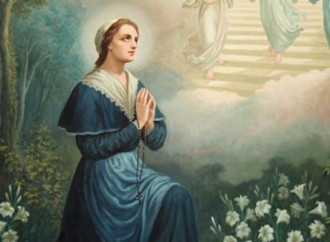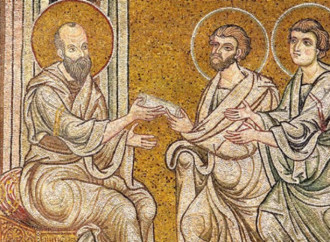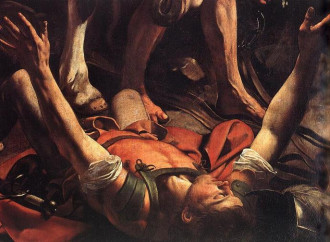Saint Agatha
The popular piety aroused by the martyrdom of Saint Agatha (c. 229-235, † 5 February 251), the Sicilian virgin who testified to her unshakeable faith in Christ during Decius' persecutions, spread quickly throughout Christendom.
Saint Gilbert of Sempringham
Gilbert of Sempringham (c. 1083-1189), founder of the only religious order that was entirely English, was the son of a wealthy feudal lord of Norman origin, who had settled in England as a result of William the Conqueror's victorious military campaign and rise to the throne.
Saint Blaise
The Saint famous for the protection of the throat was bishop of Sebaste, in ancient Armenia Minor (now in central Turkey), where he suffered martyrdom in 316 under Licinius, the then Emperor of the East.
Presentation of the Lord
The feast of the Presentation of the Lord concludes the Christmas celebrations by recalling that, 40 days after His birth, Jesus was taken to the temple by Mary and Joseph.
Saint Brigid of Ireland
According to three ancient biographies, Brigid's mother was a Christian Pict slave named Brocca, who had been baptised by Saint Patrick; her father was a pagan chieftain, whose name was Dubthach.
Saint John Bosco
Saint John Bosco (1815-1888) was a pedagogue, a writer, a publisher, a saint endowed with countless mystical gifts; he was a father to a myriad of disadvantaged children and young people whom he educated to work and to a Christian life in a Turin in the feverish climate of industrialisation.
Saint Hyacintha Marescotti
The youth of Saint Hyacintha Marescotti (1585-1640), was not what she would have preferred. She became a Franciscan tertiary without a vocation and while still upset from disappointed love.
Saint Constantius
Saint Constantius, revered as the first bishop of Perugia, was martyred in the 2nd century, either under Marcus Aurelius (in office from 161 to 180) or during the persecutions of his predecessor Antoninus Pius.
Saint Thomas Aquinas
Saint Thomas Aquinas (1225-1274), the Doctor Angelicus, as his contemporaries called him, is the highest example of the trust that medieval Scholasticism placed in human reason; like faith, reason is a gift of God, so one cannot contradict the other.
Saint Angela Merici
During the Catholic Reformation which was a period of renewal in the Church, the seeds of which had been scattered well before the onset of Luther's heresy, Angela Merici (1474-1540), founder of the Ursulines, consecrated her life to educating girls to follow the ways of God.
Saints Timothy and Titus
Since the revision of the General Roman Calendar of 1969, the Church commemorates on the same day the holy Bishops Timothy and Titus, favourite disciples of Saint Paul and recipients of three 'pastoral' letters, so called because they instruct to the two pastors regarding the duties of those who lead a Christian community.
Conversion of Saint Paul
The feast of the Conversion of Saint Paul reminds us of the fruits produced by the acceptance of grace, capable of radically transforming one of the most active persecutors of the early Church into the greatest announcer of the Gospel to the Gentiles.
